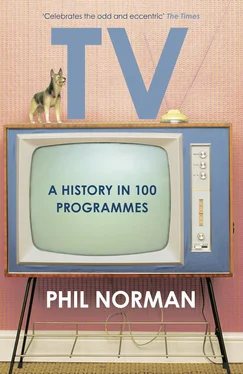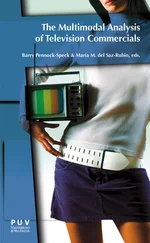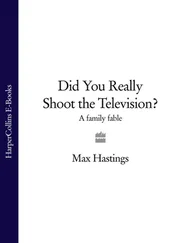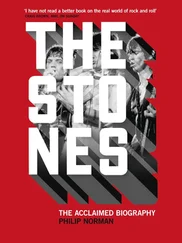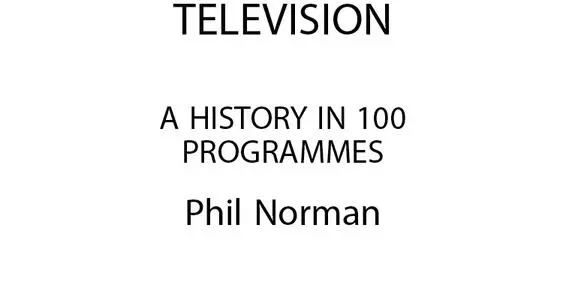

William Collins
An imprint of HarperCollinsPublishers
1 London Bridge Street
London SE1 9GF
www.WilliamCollinsBooks.com
First published in Great Britain by The Friday Project in 2015
This ebook edition published by William Collins in 2016
Copyright © Phil Norman 2015
Cover photograph © Getty Images/Steven Taylor
Design © Kate Gaughran
Phil Norman asserts the moral right to be identified as the author of this work.
A catalogue record for this book is available from the British Library.
All rights reserved under International and Pan-American Copyright Conventions. By payment of the required fees, you have been granted the non-exclusive, non-transferable right to access and read the text of this e-book on screen. No part of this text may be reproduced, transmitted, downloaded, decompiled, reverse engineered, or stored in or introduced into any information storage retrieval system, in any form or by any means, whether electronic or mechanical, now known or hereinafter invented, without the express written permission of HarperCollins.
Source ISBN: 978-0-00-811332-2
Ebook Edition © September 2015 ISBN: 978-0-00-759140-4
Version: 2016-10-07
Table of Contents
Cover
Title Page
Copyright
Introduction
Tele-Crime (1938–9)
Cookery (1946–51)
Cavalcade of Stars (1949–52)
Crusader Rabbit (1950–1)
The Burns and Allen Show (1950–8)
The Ernie Kovacs Show (1952–61)
The Philco-Goodyear Television Playhouse: Marty (1953)
Small Time (1955–66)
The Phil Silvers Show (1955–9)
A Show Called Fred (1956)
My Wildest Dream (1956–7)
Opportunity Knocks (1956–78)
The Singing Ringing Tree (1957)
Six-Five Special (1957–8)
The Strange World of Gurney Slade (1960)
Armchair Theatre: A Night Out (1960)
Hancock: The Bedsitter (1961)
Kingsley Amis Goes Pop (1962)
That Was the Week That Was (1962–3)
The Sunday-Night Play: A Suitable Case for Treatment (1962)
The Tonight Show Starring Johnny Carson (1962–92)
World in Action (1963–98)
Play School (1964–88)
Crossroads (1964–88)
Le Manège Enchanté (1964–1971) The Magic Roundabout (1965–1977)
World of Sport (1965–85)
Talking to a Stranger (1966)
The Smothers Brothers Comedy Hour (1967–9)
The Prisoner: Fall Out (1968)
If There Weren’t Any Blacks, You’d Have to Invent Them (1968, 1973)
Sesame Street (1969–)
The Owl Service (1969)
Nationwide (1969–83)
The Mary Tyler Moore Show (1970–7)
Miss World (1970)
Columbo (1971–8/1989–2003)
The Largest Theatre in the World: The Rainbirds (1971)
Duel (1971)
The Special London Bridge Special (1972)
Un, Dos, Tres … (1972–2004)
Inigo Pipkin/Pipkins (1973–81)
The Indoor League (1973–8)
Whatever Happened to the Likely Lads? (1973–4)
Thriller (1973–6)
Tiswas (1974–82)
Don’t Ask Me (1974–8)
Supersonic (1975–7)
The Thrilla in Manila (1974)
The Norman Gunston Show (1975–9)
Play for Today: Double Dare (1976)
Pauline’s Quirkes (1976)
I, Claudius (1976)
The Fall and Rise of Reginald Perrin (1976–9)
BBC Nine O’clock News (1976)
Battle of the Network Stars (1976–88)Star Games (1978–80)
Rock Follies (1976–7)
Trans America Ultra Quiz (1977–92)Ultra Quiz (1983–5)
Soap (1977–81)
Roots: The Saga of an American Family (1977)
Leapfrog (1978–9)
The BBC Television Shakespeare (1978–85)
Connections (1978)
Blankety Blank (1979-90)
Life on Earth (1979)
Minder (1979–94)
Now Get Out of That (1981–5)
Artemis 81 (1981)
Hill Street Blues (1981–7)
The Oxford Road Show (1981–5)
Jane (1982–4)
Boys from the Blackstuff (1982)
St Elsewhere (1982–8)
The Tube (1982–7)
M*A*S*H: ‘Goodbye, Farewell and Amen’ (1983)
Saturday Night Affairs (1984)
Threads (1984)
Ever Decreasing Circles (1984–9)
Heimat: Eine Deutsche Chronik (1984)
Moonlighting (1985–9)
Pob’s Programme (1985–7)
The Max Headroom Show (1985–7)
A Very Peculiar Practice (1986–8)
The Comic Strip Presents … Private Enterprise (1986)
Night Network (1987–9)
Mahabharat (1988–90)
Def II (1988–94)
Twin Peaks (1990–1)
Abroad in Britain (1990)
The Real World (1992–)
Come on Down and Out (1993)
Frasier (1993–2004)
Our Friends in the North (1996)
This Morning with Richard Not Judy (1998–9)
The Sopranos (1999–2007)
People Like Us (1999–2001)
Battlestar Galactica (2004–9)
Forbrydelsen (2007–12)
Apple Action News (2009–)
Louie (2010–)
House of Cards (2013–)
Endnotes
About the Author
Also by Phil Norman
About the Publisher
There is no holding down the modern inventor. He rides the waves of the ether with the conquering skill of a master in a celestial rodeo. Give him a valve and there is no holding him. It is almost certain that within a few years we shall have all our entertainment available within our own four walls. Press but the button and a stereoscopic talking film will happen over the mantelpiece.
‘Seen and Heard’ , Manchester Guardian, 1 April 1930
IT HAD AN AURA about it, a presence. By today’s standards it was tiny, but it dominated the room in a way its technically superior descendants never quite manage. It catered directly for two of the senses, but in operation it affected them all. The flicker and the glare of the bulbous, grey-green screen. The hum and whine of the tube heating up. The crackle of static when it turned off, the tang of burnt dust in the air when it was repaired. For decades the television set was the most advanced piece of technology to be found in any house. How it worked was a mystery, but it was literally part of the furniture.
It was also an instant portal to a cavalcade of smart, witty house guests with inexhaustible supplies of information, anecdotes, opinions and vibrant sweaters. Miraculous and commonplace at the same time, television occupied a unique position in the national imagination. Detractors claimed it hijacked the national imagination – formerly a cultural Arcadia of chamber music and well-made plays – for its own base ends, but at its best it brought classes and cultures into each other’s homes without prejudice. By the late 1960s even the press admitted that TV, coming from nowhere, was beating them at their own game and several new ones of its own invention.
The birth of television in the mid-1920s garnered more fuss than a royal baby. The race to perfect a workable system was matched by the rush to predict imminent social catastrophe. Newspapers, radio, theatre and even the motor car (why drive somewhere you can see at the flick of a switch?) were pronounced doomed many times. Rumour and misconception abounded. Professor A. M. Low worried about the effect on international relations if Americans could use the new device to view their British neighbours engaged in ‘frightful’ activities, such as drinking cocktails.1 Meanwhile, R. H. Hill of Oxford University demanded, ‘How could one have a bath in comfort if all the neighbours could look in?’2 Noted physicist Sir Oliver Lodge fretted that broadcasting’s electromagnetic waves might make planes fall out of the sky, though he didn’t expect TV to become a working reality ‘for a good many years yet, perhaps not for a century’.3
Читать дальше
